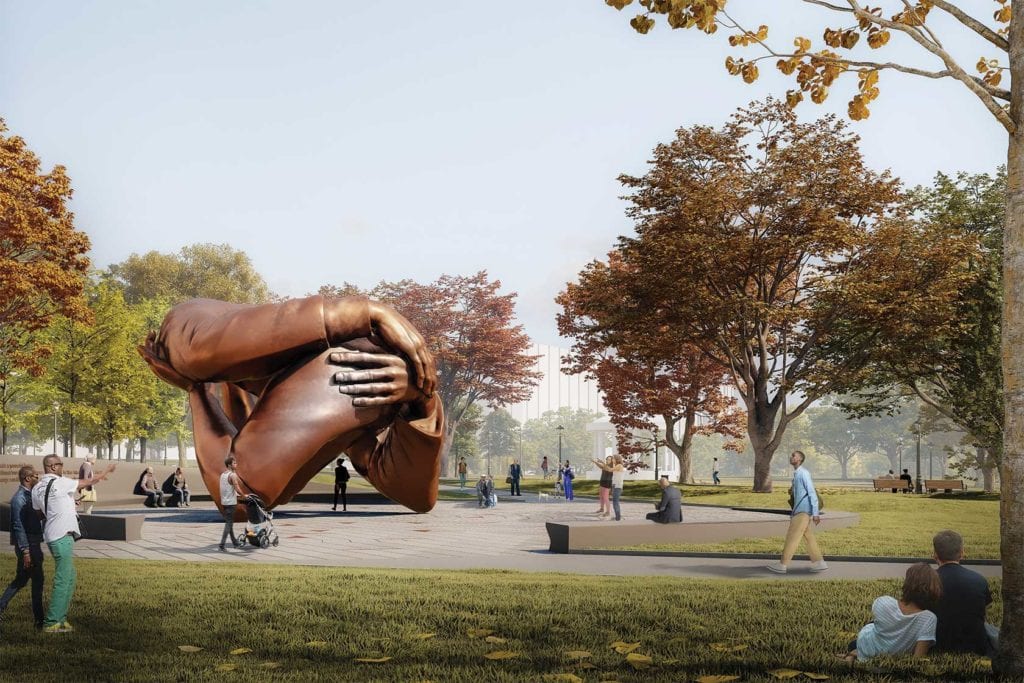An artistic dream realized
MLK Memorial design for Boston Common approved

Last week, the Boston Art Commission approved artist Hank Willis Thomas’ final design for “The Embrace,” a sculptural tribute to Dr. Martin Luther King Jr. and Coretta Scott King that will live on the Boston Common. Inspired by a photograph of the couple embracing, the piece illustrates two arms entwined around each other, providing mutual support and collective strength.
The sculpture is scheduled to be installed in 2022 near the Parkman Bandstand where Dr. King spoke in 1965. Thomas’ design was selected from 126 submissions by artistic teams around the world. Taking into account public response and logistics, the commission voted unanimously to install Thomas’s piece. Prior to installation, the plaza surrounding the piece will need approval from the Boston Landmarks Commission.
“This is a really exciting moment and opportunity for us in this project, which honors the legacy and love of Dr. Martin Luther King Jr. and Coretta Scott King,” says Thomas. “The Boston Common is the oldest city park in the country, and we are proud that this public monument will make history in this historic place.”
“The Embrace” is unique in its celebration of the famous civil rights figure. Most memorials to Dr. King depict the man himself, often larger than life, emanating strength and dignity. Here, the memorial celebrates the power of collective action and support and the role of Coretta Scott King, and therein of other female leaders and participants in activism. This perspective is fitting in Boston, the city where Dr. King and Coretta Scott met. “The Embrace” is a reminder that change is community work and not the job of a singular savior.
“It will be a constant source of inspiration for all residents and visitors to Boston,” says Mayor Martin Walsh, “and will play an important role in marking the progress we’ve made in addressing inequity in our city and reminding us of the work that still needs to be done.”
King Boston, a privately funded nonprofit organization, is pioneering the memorial project in partnership with the City of Boston and the Boston Foundation. “The Embrace” is just one part of a three-prong plan by the organization. King Boston is also looking to establish a Center for Economic Justice and a series of programs engaging the public in anti-racist discourse.
“It has been a pleasure to be able to witness all of the wonderful work that has gone into this project, especially the community process,” said Ekua Holmes, vice chair of the Boston Art Commission. “We were able to engage the multitude of voices that make up our city in conversation about the future of public art. ‘The Embrace’ represents our rich history and our shining future.”








